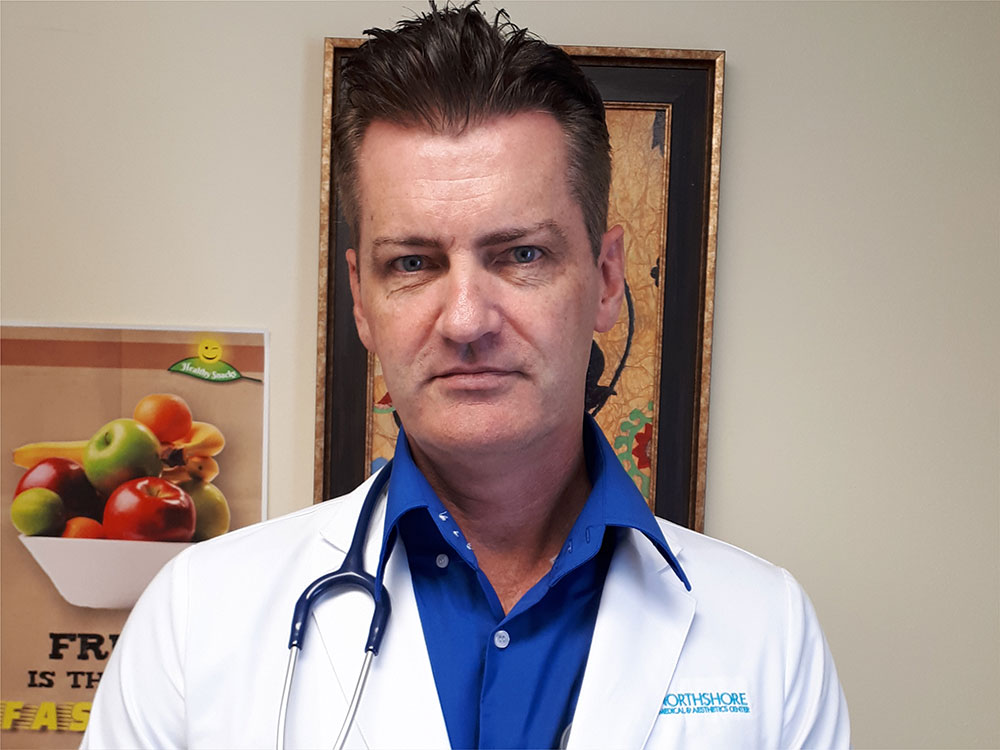

Sports Medicine doctor Jeff MacLeod knows a lot about athletics.
In addition to playing everything from cricket to Ozzy Rules football, martial arts and tennis as a youngster growing up in Australia, Dr MacLeod is also experienced in diagnosing and treating sports and training injuries. He gained a post-graduate diploma in Sports and Exercise Medicine from the University of Bath, which happens to be the UK's premier Sports Science facility and the location for the English Institute of Sport. For eight years, he served as a sports medicine doctor working in state-of-the-art Regional Rehabilitation Units with the British Defence Medical Services. Currently, he is serving at Northshore Medical and Aesthetics Center. Dr MacLeod tells us his suggestions for how Bermudians can recover from injuries and enhance their athletic performance….
A: To put it plainly, it’s a branch of medicine that deals with physical fitness and the treatment and prevention of injuries related to sports and exercise.
Q: Who is Sports Medicine for?A: Believe it or not, sports medicine is used to treat all kinds of injuries, not just those in professional athletes. I’ve worked with individuals who take part in sports just for fun, as well as those who look into sports medicine to enhance their results from exercise.
Q: Is Sports Medicine something that is needed in Bermuda?A: I actually find people in Bermuda to be pretty active. The weather is conducive to being outdoors year round and most people I meet are members of some athletic club - be it for golf, tennis or cricket. I also find a lot of people in Bermuda do multiple sports like football and cricket, which can be a challenge because every sport has different requirements for the body, so sports medicine is definitely something important for Bermudians.
Q: What are some of the common sports injuries you’ve seen here?A: One of the common conditions I’ve seen in Bermudian patients is called tendinopathy, which is a type of tendon disorder that results in pain, swelling and reduced function or mobility. Tendons are the fibrous tissue that connects the muscle to the bone. If you tear muscle or break bone it usually heals very well, but if you damage the tendon itself it causes a lot of pain and dysfunction and can be quite difficult to treat.
Q: So what are the treatment options, if any, for tendon disorders?A: The goal is to try to treat tendon injuries when they’re acute. I encourage people who are active with sports to condition their bodies to ensure the biomechanics are in order. A low impact training regime is also quite important for athletes. I’ve seen instances where coaches increase an athlete’s training programme intensity too far too fast. That’s usually when you see damaged tendons.
Q: What are other sports related injuries or musculoskeletal conditions that can be treated at NMAC?A: We have treatment options for conditions such as mild-to-moderate osteoarthritis of the joints (particularly knees, ankles and shoulders), Golfer’s and Tennis elbow (medial and lateral epicondylitis), rotator cuff injuries of the shoulder, plantar fascitis, ligament healing (including post surgical) and many more.
Q: What are treatment options?A: In addition to injection therapies used to treat new and chronic injuries to the joints, tendons, ligaments, muscle and nerves, we also offer non-invasive therapies like shockwave therapy and low level laser therapy. We also offer bespoke nutrition and supplementation planning, which can help ensure people are eating the right things and taking the right supplements to aid in their performance and muscle recovery; as well as various forms of health monitoring.
For more information or to book an appointment, call 293-5476 or visit: www.nmac.bm